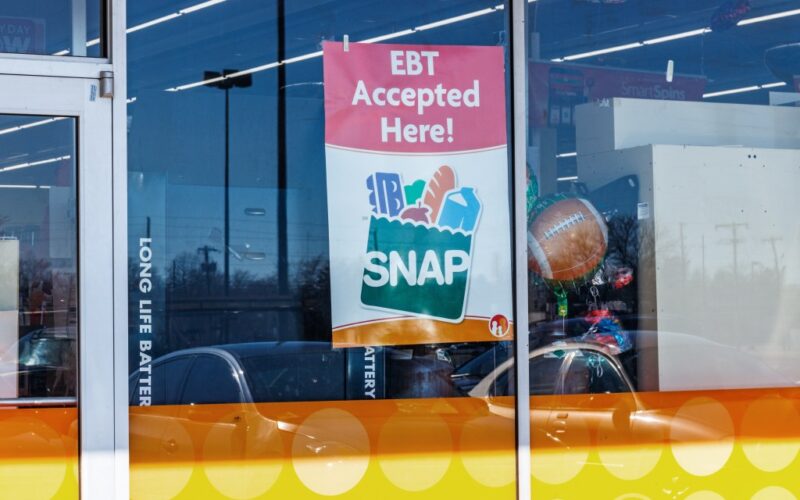Proposed federal cuts to Medicaid and food assistance could result in more New York children losing insurance coverage or facing hunger, according to child advocates.
In New York City, about 1.8 million people receive benefits through the Supplemental Nutrition and Assistance Program, or “SNAP” — including 560,000 children, according to figures compiled by the comptroller’s office. Medicaid enrollment for residents from birth to age 20 is about 1.2 million.
“This budget hurts millions of people fighting to remain in this increasingly unaffordable city,” Comptroller Brad Lander said in a statement. “Draconian figures like [President] Trump have tried to gut our social safety net before, but hardworking New Yorkers and their families will remember every time they visit a hospital or go to bed hungry.”
House Republicans are looking to push through a package of tax breaks and spending cuts to advance Trump’s agenda, including a multibillion-dollar cash infusion for immigration enforcement and the military. The plan has faced pushback from Democrats and GOP hard-liners who insisted on deeper cuts.
As of Friday, the latest iteration could cut Medicaid by hundreds of billions of dollars, including by new work requirements focused on non-disabled adults without dependents. States, such as New York, that use their own funds to give insurance to undocumented immigrants could also be penalized. Supporters of the measures say they would help root out waste and fraud.
“I will never cast a vote that takes Medicaid away from eligible recipients who rely on this vital program, such as seniors, children, the intellectually and developmentally disabled, single mothers and families facing tough times,” Rep. Mike Lawler (R-Westchester) wrote in a recent op-ed in Lohud. “Rather, my commitment has always been to strengthen these programs by cracking down on scam artists exploiting them at taxpayer expense.”

But child advocates warned of the ripple effects.
“Simply put, the impact of these proposals would be enormous for a lot of children and families throughout out New York,” said Raysa Rodriguez, executive director of Citizens’ Committee for Children of New York, which released an online tool to help parents learn about the potential impact of Medicaid and SNAP cuts to their congressional district.
The look-up function also lets families know if their representative voted for the budget resolution that called for the cuts.
Rodriguez noted that Medicaid goes toward health care coverage for families that are income-eligible, but it is also a mechanism for supporting public services — from school health clinics to special education — that are financed in different shapes and forms through Medicaid funding.
Sweeping changes could also impact what resources the state has on hand for other policies that support children and families.
“Part of the concern is changes of this magnitude and size would result in a bigger, more significant burden on the state, and could have an impact on the type and scope of services provided [and] how we determine eligibility,” Rodriguez said.
“This level of decimation of funding would really limit the ability of New York state to respond to the needs of families and children. It’s not hypothetical.”
Lander’s analysis also found more than half of babies delivered in New York City each year are born to parents covered by Medicaid.
The package would also cut federal spending on SNAP, largely by shifting substantial new costs to states for the first time and increasing work requirements for parents of children as young as 7 years old.
Child hunger advocates also warn against cuts to future SNAP benefits that do not take effect immediately — but could limit the ability of food assistance to keep pace with the rising costs of groceries.
“We know when kids have regular access to meals, they thrive. They have higher attendance rates; they do better in school. They struggle less with chronic health issues like asthma,” said Rachel Sabella, director of No Kid Hungry New York.
If federal cuts undo years of progress made in fighting child hunger, Sabella added: “I’m terrified about what that would mean to families.”
After the House passes a bill, it faces an uncertain future in the Senate, where a majority of Republicans need to agree to the identical to avoid a filibuster under a complicated legislative process known as reconciliation.
“I want every member of the New York State Congressional Delegation, especially our Republican members that have a powerful voice right now, to remember we shouldn’t be playing politics with people’s ability to put food on the table,” Sabella said.
With News Wire Services








